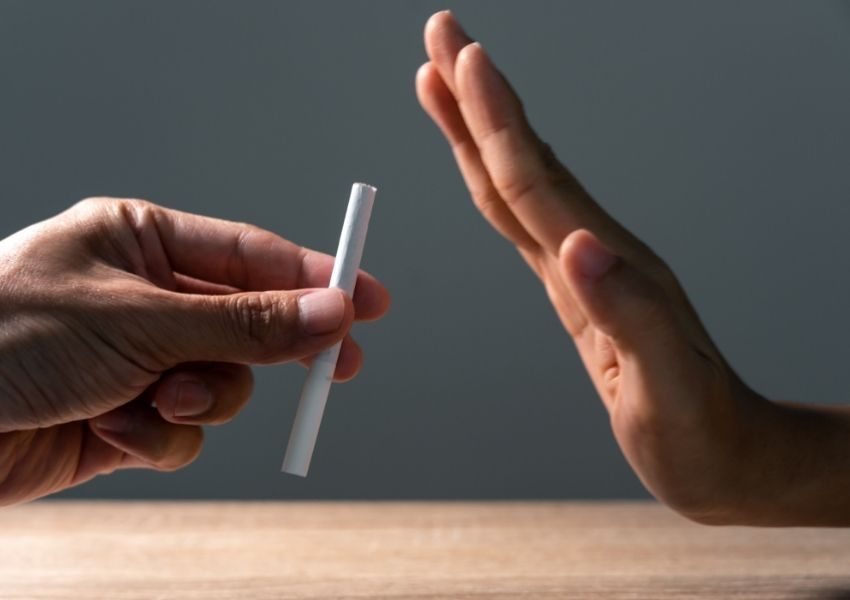Stopping smoking is a decision that can have a big impact on health. The process of quitting smoking goes through a number of body changes as your body tries to repair itself from the harmful effects of tobacco. It is not an easy way, but when you know the timeline and benefits of quitting, it may give you the necessary drive to remain committed.
The First 24 Hours:
When you take your last cigarette, within minutes the body starts undergoing some real changes. The heart rate reduces after just twenty minutes and gets to normal levels. In eight hours time, carbon monoxide levels in the blood are back at their normal levels which means more oxygen is moving freely in the system. By the end of day one, decreased blood pressure also means a lower risk of getting heart attack.
48 Hours Later: Enhanced Senses:
Just two days after quitting smoking, taste and smell nerve cells start regenerating. This improves your senses, thus rendering food more delicious and scents more intense than before. But on the other hand nicotine withdrawal symptoms may subdue you in this time like anxiety irritability and cravings for smoke which are merely indications that nicotine is being expelled from your system though they might be extremely uncomfortable but it’s a step towards good side.
The First Week: Physical Withdrawals:
The first week of quitting smoking is often very difficult for most ex-smokers because their bodies are adjusting to absence of nicotine. Around this time physical withdrawal symptoms reach peak levels, including headache, sweating hands or alternately cold feet dizziness along with strong urges for cigarettes – reminding one that they had better not give up just yet! It is good to consider that these symptoms are only temporary and typically subside within a week or two. To alleviate these effects one may drink water, sleep enough hours at night as well as involve themselves in any stress reducing activities such as exercising or meditation so that they can feel better again.
1 to 3 Months: Respiratory Health Improves:
Your lung function begins to improve one month after quitting smoking. At this point, cilia which are hair-like structures in the lungs that help get rid of mucus and other unwanted substances begins repairing and regenerating themselves. Consequently, there is much less coughing and shortness of breath. By the third month, your lung capacity could increase by almost thirty percent facilitating activities such as walking or running.
6 Months: Enhanced Circulation and Lung Efficiency:
Six months after quitting, more noticeable changes take place in your body. Blood circulation continues improving thereby minimizing chances of heart attack or stroke occurrence. Furthermore, lungs become better at cleaning themselves from any damage done through smoking over time. Mine coughing bouts have reduced; thus, mucus expulsion becomes easier while also fighting off infections with increased efficiency from my respiratory system itself. This allows me to maintain higher levels of stamina hence making daily tasks less burdensome physically speaking.

1 Year: Major Health Milestone:
When you quit smoking for a year, it is an accomplishment. The heart disease risk at this stage reduces to almost half that of a smoker. Your heart and lungs are healthier than ever before, circulation is improving and stamina increases quite significantly. Your lungs will regain their full capacities for effective functioning which means reduced risks of infections such as pneumonia.
5 To 10 Years: Reduced Risk Of Cancer And Stroke:
After five years without smoking, the chances of getting oral cavity, larynx, esophagus and bladder cancers reduce by fifty percent. There is also reduced risk for cervical cancer as well as stroke that makes them comparable with non-smokers’ risks. From five to ten years all damaged blood vessels and arteries would heal considerably hence reducing cardiovascular disease risks.
15 Years: Risk Levels Normalize:
It takes 15 years after quitting smoking for heart disease risk to become equal with someone who never smoked before. Correspondingly, there is also a significant decrease in the chance of developing lung cancer although there may still be a slight difference compared to non smokers’ chances of getting lung cancer over time . Taken together, this means that your body has almost fully healed from the effects of cigarette smoking while the danger associated with most diseases related to smoking has reduced greatly.
Overcoming Psychological Dependency:
While physical dependence upon nicotine can usually be managed within just some weeks/months; psychologic addiction often lasts longer than that . The things which leaded someone into taking cigarettes – likework stressors , social gatherings or even habits might stay behind for many years .Overcoming those barriers would require support coming from friends/family/health care specialists , as well as practicing mindfulness activities like meditation together with breathing exercises .
Let’s try a different approach statement practically holds true especially for people who have a habit of smoking. We all know that there are numerous ways to quit smoking and one of the most effective methods is through identifying one’s addiction sources.
Ultimately, this means living longer and healthier:
Kicking the weed is hard but it brings more good than bad. Once you stop smoking cigarettes, you will heal your body from the injuries that were caused by nicotine; as a result, you will have higher energy levels than before, better lungs and less chances of getting heart diseases or cancers hence live longer. It is indeed an emotional rollercoaster but the advantages of quitting smoking become more pronounced with every new dawn giving hope for brighter and healthier days ahead.
